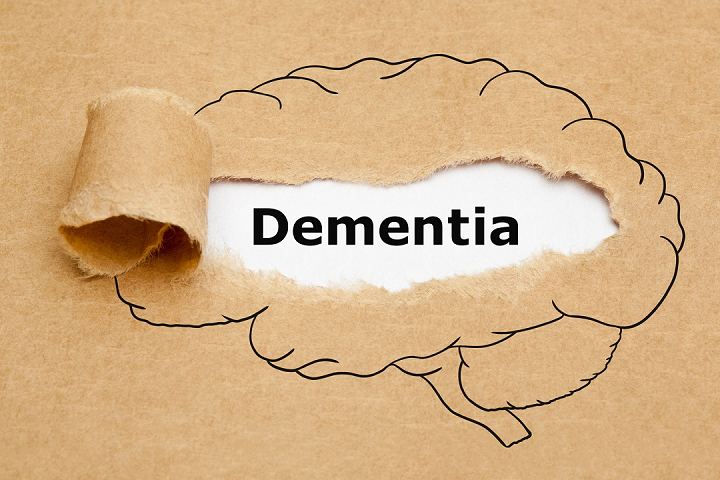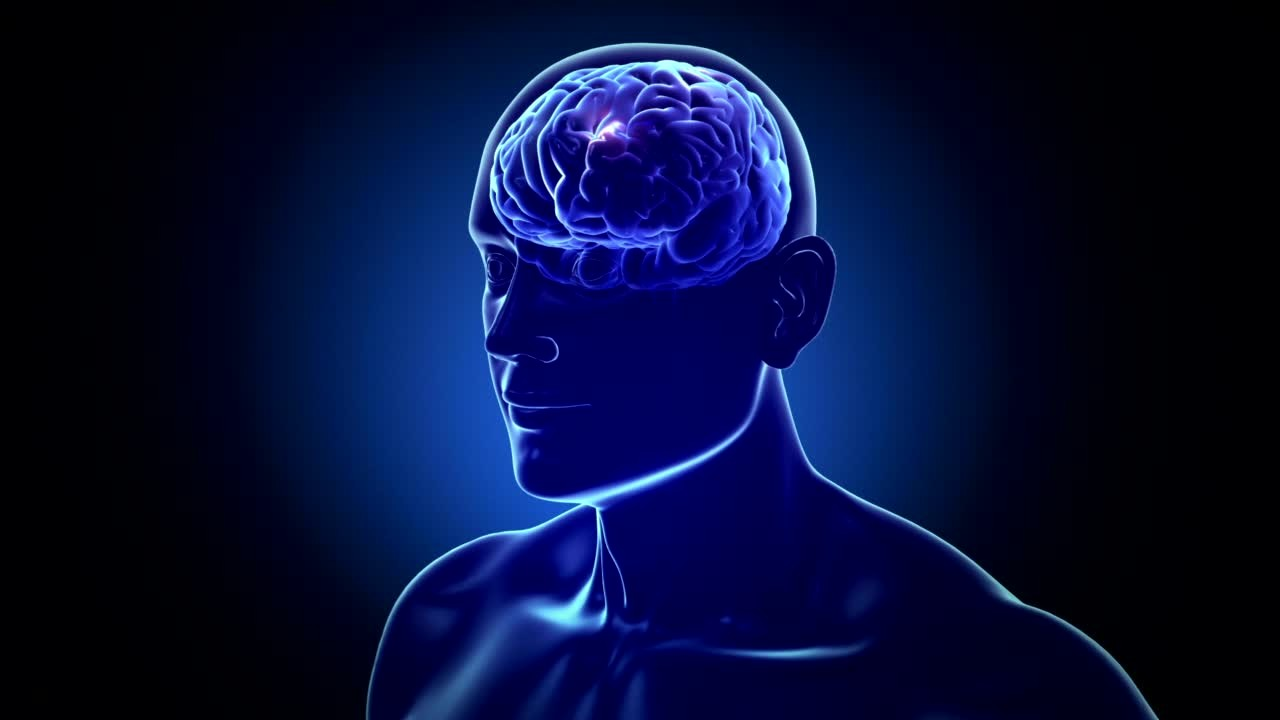- Home
- Dementia
Dementia
Welcome to Dr. Nirzaree Parikh's Psynchronize Minds: Your Path to Harmony and Understanding Dementia
Welcome to Psynchronize Minds, a haven where hope is reignited, and healing begins. Psynchronize Minds, under the expert leadership of Dr. Nirzaree Parikh, is committed to understanding and treating Dementia. Our approach is rooted in compassion, innovation, and a deep commitment to patient care.
At Psynchronize Minds, we see you, we hear you, and we are here to walk with you towards the light of well-being.

Understanding Dementia:
What Is Dementia? A collection of symptoms resulting from disorders affecting the brain, impacting memory, cognitive abilities, and social skills.
Dementia is a progressive neurological disorder that affects millions of people worldwide, characterized by a decline in cognitive function beyond what might be expected from normal aging. Dr. Nirzaree Parikh, a noted expert in the field, often explains the process of dementia in a way that is accessible and informative for both medical professionals and the general public.
According to Dr. Parikh, dementia is not a single disease but a term that covers a wide range of specific medical conditions, including Alzheimer’s disease, which is the most common form. The brain changes associated with dementia include damage to nerve cells and their connections. This damage interferes with the ability of brain cells to communicate with each other, which can affect behavior, feelings, and thoughts.

The process of dementia can be described through several stages, starting with the earliest symptoms that are often very mild and may be mistaken for normal aging. As the disease progresses, memory loss becomes more severe and additional symptoms can develop, such as confusion, mood swings, trouble with language, and decreased motivation. In the later stages, individuals may experience significant changes in personality and physical functions, including the ability to walk or eat.
Dr. Parikh emphasizes that while there is currently no cure for most types of dementia, early diagnosis and appropriate management can improve the quality of life for individuals with dementia and their caregivers. Treatment strategies might include medications, cognitive therapy, and lifestyle changes, tailored to the individual’s symptoms and needs. Awareness and understanding of the disease’s progression are crucial in managing its impact effectively.

Common psychological symptoms of Dementia are:
Symptoms and Signs: Memory loss, dimculty in communicating or finding words, dimculty in completing complex tasks, planning and organizing, coordination and motor functions, and confusion and disorientation.
Memory Loss:
A common early sign of dementia is forgetting recently learned information or important dates and events. For example, someone might repeatedly ask for the same information or rely heavily on memory aids like sticky notes.
Difficulty Performing Familiar Tasks:
People with dementia often find it hard to complete daily tasks that they used to manage easily. For instance, they may struggle with driving to a familiar location, organizing a grocery list, or remembering the rules of their favorite game.
Language Problems:
Dementia can cause trouble with communication. The person might forget simple words or substitute inappropriate words, making their speech or writing hard to understand. For example, they might call a “watch” a “hand clock.”
Disorientation to Time and Place:
This symptom involves losing track of dates, seasons, and the passage of time. A person with dementia might get lost on their own street, not knowing how they got there or how to get back home.
Poor or Decreased Judgment:
Dementia can affect judgment, making it dimcult for individuals to make appropriate decisions. For example, they might wear heavy clothing on a hot day or give large amounts of money to telemarketers.
Problems with Abstract Thinking:
Managing finances becomes a problem. Someone with dementia might have trouble understanding what numbers signify on a calculator or how to keep track of bills.
Misplacing Things:
A person with dementia may put things in unusual places. For example, they might store an iron in the freezer or a wristwatch in the sugar bowl.
Changes in Mood and Behavior:
Mood swings are common in people with dementia. They can be calm one moment and tearful or angry without any apparent reason the next.

Behavioral and Psychotic Symptoms of Dementia Explained by Dr. Nirzaree Parikh
Dementia is a broad term used to describe a decline in mental ability severe enough to interfere with daily life. It primarily affects older adults and is associated with various cognitive and behavioral symptoms. Here, we’ll break down the behavioral and psychotic symptoms of dementia into simpler terms, with a case study to illustrate these points:

Changes in Behaviour:
Agitation or Aggression: Individuals with dementia may exhibit heightened agitation or aggression, often as a reaction to feelings of confusion or being overwhelmed.
Anxiety and Depression: Common feelings like sadness, fear, or nervousness are typical responses. These emotions can result from the frustration of noticing a decrease in memory and other skills.
Sleep Problems: Dimculty sleeping or changes in sleep patterns often occur. This can include waking up frequently during the night or sleeping during the day instead of at night.

Psychotic Symptoms:
- Hallucinations: These involve seeing, hearing, feeling, or smelling things that aren’t there. For example, a person might hear voices or see people who aren’t actually present.
- Delusions: These are strong beliefs in things that aren’t true or based in reality. For instance, a person might think they need to go to work even though they haven’t worked in years.
- Paranoia: This is a form of delusion where the person might believe that others are out to harm them or steal their belongings.

Our Services:
At Psynchronize Mind’s Dementia Clinic, we offer a range of services tailored to meet the individual needs of our clients. Our approach is holistic and evidence- based, ensuring that each person receives comprehensive care.
Personalised Treatment Plans:
Dr. Nirzaree Parikh and our team of experts craft treatment plans tailored to your unique needs and your assessment results, incorporating a blend of therapy, lifestyle changes, and medication if necessary.
Comprehensive Evaluation:
Initial sessions would likely involve a thorough evaluation of the patient’s mental health history, current symptoms, and overall well-being to understand the depth and nature of the dementia.
Use of Standardised Psychometric Tools:
Dr. Parikh might employ a range of standardised psychometric assessments such as MMSE: Mini Mental Status Examination designed to measure Dementia using neuropsychological testing and cognitive testing, providing a baseline for treatment.
Integration with Treatment:
The use of psychometric assessments would likely be integrated with a broader treatment plan, which could include therapy, medication, or other interventions recommended by Dr. Parikh.
Medication Management:
Several types of medications are used to help to slow down progression of symptoms of Dementia. Dr. Nirzaree Parikh is skilled in assessing and managing medication, carefully considering the benefits and potential side effects.

Supportive services:
These services aim to provide guidance and assistance to families and caregivers in need. Counseling sessions offer a safe space to discuss challenges and explore coping mechanisms, while educational programs equip individuals with valuable skills and knowledge to better care for their loved ones. By offering these supportive services, we strive to empower families and caregivers to navigate their roles with confidence and compassion.
Hospitalization Care:
When it comes to hospitalization care, ensuring patients receive round-the- clock medical attention is crucial. Whether it’s monitoring vital signs, administering medications, or responding to any emergencies that may arise, the dedicated healthcare team is always available to provide the necessary care. Patients can rest assured that their well-being is a top priority, and they are in good hands throughout their hospital stay.
- Cognitive enhancement exercises:
Cognitive enhancement exercises are increasingly recognized as beneficial interventions for individuals with dementia, aiming to slow the progression of cognitive decline and improve quality of life. One effective approach involves memory training exercises. Another key area of cognitive enhancement is through language and communication exercises. Finally, problem-solving exercises are also valuable for cognitive stimulation. These might involve puzzles like Sudoku or logic problems that require critical thinking.
- Educational Workshops:
Knowledge is power. Our workshops aim to educate about mental health, breaking down complex concepts into understandable insights, fostering a community of support and understanding.
- Accessibility Options:
Depending on the practitioner, services might be available in-person at a clinic or hospital setting, or remotely through tele-consultation options to accommodate patients’ varying needs.
- Virtual Consultations:
Accessibility is key to effective care. We offer virtual consultations, online prescriptions and therapy sessions for those unable to visit in person, ensuring help is always within reach.
- Confldentiality and Privacy:
Ensuring all assessments and discussions are conducted in a confidential and secure environment, respecting the patient’s privacy at all times.
- Insurance and Payment Information:
Information on the cost of assessments, treatment and potential coverage by health insurance plans might be provided upfront, ensuring transparency regarding expenses.
- Support and Resources:
Offering additional support and resources, such as educational materials about dementia, referral to support groups, or other mental health services as part of a comprehensive care approach.

Caring for the Elderly with Dementia: Tips and Strategies
- Establish a Routine: Creating a routine can provide a sense of structure and predictability to their day, making it easier to navigate through tasks and responsibilities. By setting a consistent schedule, one can establish a sense of stability and control in their life. This can help reduce feelings of overwhelm and uncertainty, leading to a more balanced and peaceful state of mind.
- Effective Communication: Effective communication is crucial when interacting with patients who have dementia. Use short, straightforward sentences and avoiding open-ended questions that might confuse the patient. Instead, one should pose questions that can be answered with a simple “yes” or “no.” Dementia can cause patients to process information more slowly, so it is important to give them ample time to respond without rushing them.
- Safety First: Ensuring the safety of individuals with dementia is a paramount concern. Dmentia requires thoughtful adjustments to a person’s living space and lifestyle to maintain their well-being and prevent accidents.It is important to create a safe and comfortable living environment. This involves minimizing risks in the home which can lead to falls or injuries. Additionally, safety locks may be used on cabinets and doors to restrict access to potentially dangerous items such as knives, medications, and cleaning chemicals.
- Engage in Activities: Engaging individuals with dementia in activities can significantly improve their quality of life by providing them with a sense of purpose, reducing agitation, and promoting relaxation. Activities that resonate with past hobbies, work-life, or talents are more likely to engage and stimulate. For example, someone who enjoyed gardening might appreciate arranging flowers or tending to indoor plants. This personal connection can make activities more meaningful and less confusing or frustrating.

Why Choose Dr. Nirzaree Parikh for Dementia Treatment?
- Expertise and Experience: Dr. Parikh brings a wealth of knowledge and a deep understanding of dementia.
- Compassionate Care: A commitment to treating patients with dignity, empathy, and respect.
- Innovative Approach: Utilizing the latest research and treatments to provide the best care.
- Personalized Attention: Each patient receives focused care tailored to their specific needs.
At Psynchronize Minds’ Dementia Clinic, we understand the complexities of dementia and strive to provide a supportive and caring environment for our patients and their families. Under the guidance of Dr. Nirzaree Parikh, we are dedicated to enhancing the quality of life for those affected by dementia through comprehensive care, innovative treatments, and unwavering support.
